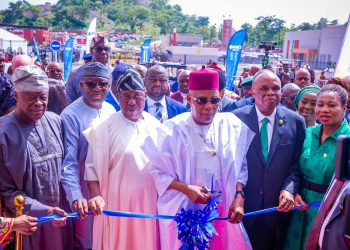Once one reveals the truth and asks for forgiveness, that is a starting point for unity and reconciliation. This was a statement made by Local Government Minister Francis Kaboneka at Ntarama Memorial site on Sunday where 5000 bodies of the victims of the genocide against the Tutsi are burried.
He said perpetrators should not only pleade guilty, they should also change and understand the ensence of unity and reconciliation. That is how Rwandans will fighting the evil, Kaboneka explained.
“It is no surprising that Ntarama is one of the areas that experienced extreme killings…after Kayibanda had agreed with Mobutu to return Tutsis who had fled to Zaire, they were eventually killed brutally, because the killers had not changed,” Kaboneka added.
The Minister also criticised those who say that the shooting of the airplane that carried President Habyarimana, was a trigger of the Genocide.
The Genocide had been planned before and the language that encouraged the massacres such as “kurimbura” or exterminating the Tutsis had been used by the authorities including former Prefects and even Presidents such as Gregoire Kayibanda.
When Kayibanda said it, many Tutsis had been already murdered at Ntarama as the result of an attack of the so-called Inyenzi from Burundi. Between 1963, 1964, 1973 Tutsis were killed in this area of Ntarama. Tutsis who had been taken into forests to be tormented by insects were returned and murdered.
Meanwhile, Ntarama is also known to have had barely no one to rescue or support the victims.
“In 1992, when this area was attacked, if there had been several people like Silas to rescue the people, we should be thanking them today, but none bothered,” the minister said. Silas Ntamfurayishyari is a former FAR soldier during Habyarima’s regime who acted against the orders of his commanders and rescued Tutis instead of killing them.
The Tutsis were all killed even before, but it was worse in 1994. “I would like to tell you that we are also grateful to Inkotanyi [RPA] fighters.”
Towards the end of his speech, Minister Kaboneka reminded Rwandans that no one else should be advising them what to do.
“And our life as Rwandans, we owe it to no one else, and no one should tell us what to do, no one should make our choices, but ourselves. Our brothers and sisters, our parents who were killed here, where they are now, when they see how we are sitting like this remembering them and giving them their value, they are happy that despite having been taken from us, we are not uncaring people; we are heroes.”
The few survivors gave swipping testmoneies of the events during the horrific time and also shared stories of their new life.
Chantal Niwemugeni, one of the survivors, said that after the horror, and loss of her relatives, she has recovered and moved on, but she could not forget thanking the RPA soldier who rescued them from the pungs of death.


















